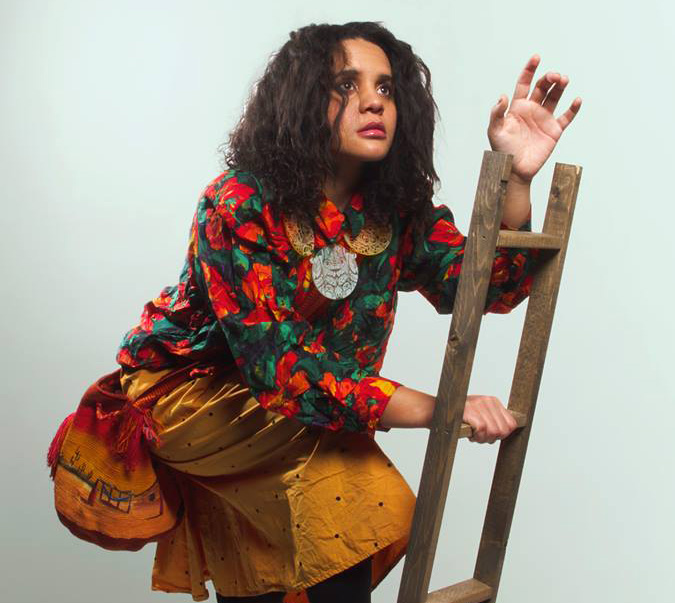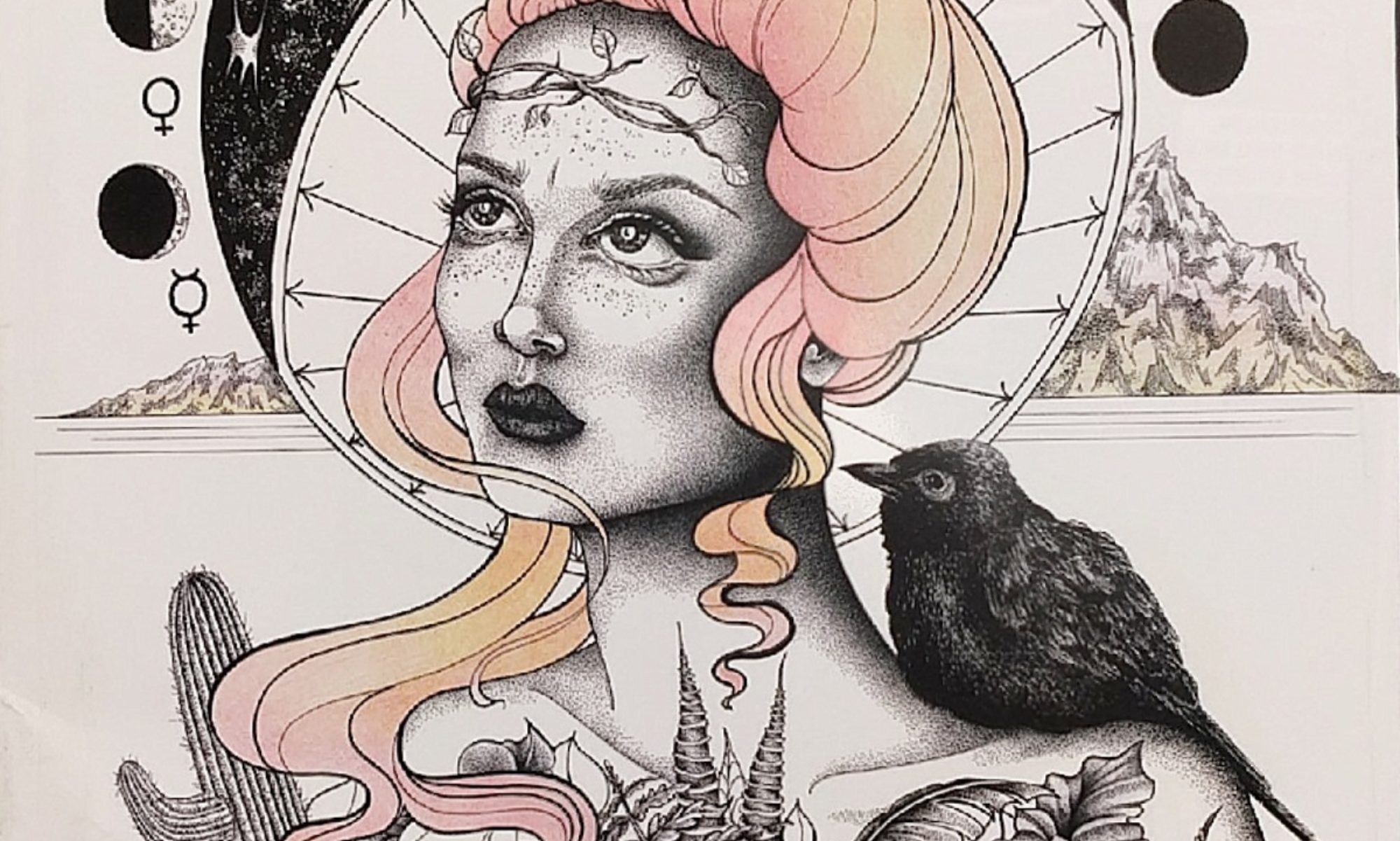
by Alex Roberecki
After her latest album, La Papessa, won the $50,000 2017 Polaris Music Prize, Colombian-Canadian singer-songwriter Lido Pimienta has been busy. While raising a young son as a single mother, Pimienta has been spending time developing her sound, her live performances, and her vocal presence on social issues. She is a unique addition to the 2018 Winnipeg Jazz Festival line up as her music combines styles such as indigenous Afro-Colombian music with western electronica and synth pop.
She initially added the electronic element for an easy way to perform as a solo artist but it has melded into a defining factor of her sound. It is a modern revival to the combination of different upbeat styles of Afro-Colombian folk. Her concerts are a unique display of art.
Usually dressed in traditional Colombian fashion, Lido walks around the stage with intended purpose being immersed in the music she is creating. Each time a song is performed it is never the same. Drawing from her jazz influences, Pimienta at times vocally improvises over her electronic beats, which are always recreated live by her and her band. At each show her goal is to immerse the audience with stories and connect them to the emotions as well as the different perspectives in her music.
Lido uses her amazingly wide vocal range and colour wheel of dynamics to paint a picture. Almost all lyrics are sung in Spanish. They convey topics such as of pain, joy, race, oppression, family, freedom, hate, love, and sexuality. Pimienta’s inspiration is drawn from her past growing up as an Indigenous person in Columbia, whilst living through a gruesome civil war that tore her country apart. Consequently, after a threat was placed on her family, she was forced to flee to Canada where her outlook on western living changed forever.
Back in April I got the chance to interview Lido over the phone right before she set out on her spring tour across America. We discussed her musical upbringing, how she started out in a metal band, and the current state of Spanish music in the music industry.
Stylus: What made you want to go for a more electronic set on tour?
Lido Pimienta: It started out of necessity. When I started playing in Canada I did not have a band or many friends to collaborate with. Before coming here, I was only in bands. I learned you can have a full band with only three pieces of gear. Slowly I started building my crew. Right now, there are three of us on stage. Me and one guy are running the electronic end and the other guy takes care of the Afro-Cuban percussion that are handmade from Columbia. This way it really keeps us from getting attached or married to a grid of just electronic music. To get people to participate I have to make sure I give good variety in the performance. Not just the same thing over and over. If I’m mad, everybody’s mad, and if I’m sad, everybody’s sad. I would get completely bored playing the same song the same way. When I perform a song I’m very expressive. My show is full of emotion, every show I’ve done there has had at least three or four people crying. There are people laughing, some people get offended and leave. But I don’t care about that.
It’s a really good way to release pain and frustration. When you leave you feel you can be better and do better than you have been.”
S: What types of bands were you in back in Colombia? What does your musical background look like?
LP: My first band was actually a metal band. I didn’t start using my pretty singing voice until later. I was using my guttural voice pretty early on and I still use it sometimes. I was in metal, hardcore bands, punk bands. I’d say the real punk. Sometimes the drums we used where not store bought we had to make them out of plastic and buckets. We were playing in basements and saying really dangerous stuff about the government in a country where people will definitely disappear for it. I started singing in these bands when I was eleven but eventually I started singing Afro-Colombian folk music of the north coast called “Music of the Water,” which was written by the women or matriarchs by the river. I also at the same time had a hip hop crew. I did everything. By the time I was 16 I had been in 15 bands. The last show I performed in Columbia was for about 10,000 to 20,000 people when I was 19. It was one of the biggest hip-hop festivals there. I was well on my way to becoming the next big thing in Columbia but then I moved to London, Ontario and then that was that.
S: What made you leave Colombia?
LP: It wasn’t my decision, there were threats against my family. They were going to kidnap my mother and sister if we didn’t leave. We had to seek refuge outside of the country. We had the choice to go to LA but my mom said, ‘Let’s go to Canada, because nothing happens there.’ So we ended up settling just outside of London, Ontario.
S: What’s the next step for you as an artist?
LP: Well, my next album I think will make me what they call a breakthrough artist. Because we were in a moment where in the last ten years Spanish or Latin music would not make the global or mainstream platforms. But now you have artists making it whose entire discography is in Spanish. For example, Cardi B is a break through artist right now and out of her album the strongest song has J Blavin and Bad Bunny on it. She is rapping in English but half of the song is in Spanish. With those two (J Balvin and Bad Bunny) they don’t sing in English. J Balvin is one of the two Colombians who are doing records with artists like Beyoncé. And in the song with Beyoncé, she is singing in Spanish. People are understanding the shift and understanding that there is a market for people who speak Spanish.”
Lido Pimienta plays at the WECC on Tuesday, June 19 at 8pm as a part of the Winnipeg International Jazz Festival.

